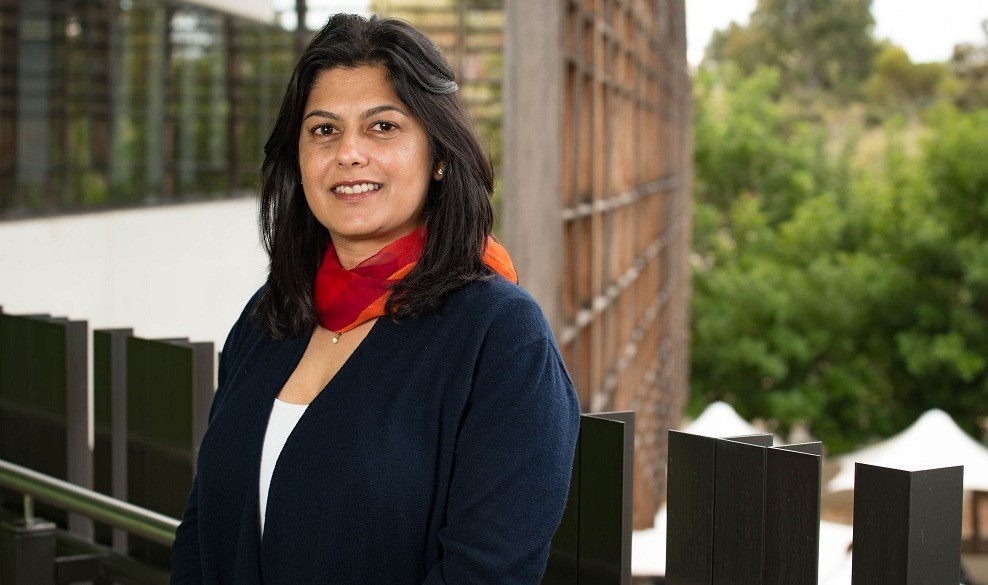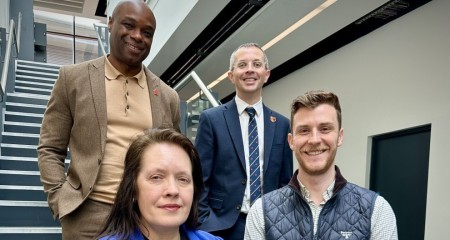
Lancaster University's Health Innovation Campus is helping increase breast screening attendance using artificial intelligence. The new technology to boost the number of patients attending vital breast screening appointments has been developed through a collaboration between the Health Innovation Campus, Redmoor Health and the NHS.
Gina Newman, Health Improvement Practitioner at University Hospitals of North Midlands Trust’s Breast Care Unit, approached Redmoor Health – a Preston-based company specialising in digital communications for the health care sector – to discuss innovative ways to improve patient engagement.
By using Facebook to target specific patient groups, the unit saw its participation numbers increase to among the best in the country – with its approach being recognised nationally.
However, it soon became clear that people using social media often expect a round-the-clock response and a new system was required. They approached the Health Innovation Campus at Lancaster University and worked with their team of analyst developers, funded by the European Regional Development Fund (ERDF), to design an artificial intelligence plug-in for Facebook which could answer the majority of questions patients asked, whether clinical staff were available or not.
They also developed a telephone interface which uses artificial intelligence to provide the correct answers to verbal questions in real time. Gina said: “We introduced a strategy to use Facebook to improve and encourage patient engagement among hard-to-reach clients. However, we weren’t always available to answer questions immediately and don’t have the resources to provide 24/7 coverage.
The artificial intelligence system we are building with Redmoor Health and Health Innovation Lancaster should resolve those issues.” [embed]https://youtu.be/vUdfLhite5E[/embed] The ERDF-funded project means eligible Small and Medium-sized Enterprises (SMEs) can access fully-funded support to help develop digital health products and service ideas, conduct usability testing and create early-stage software prototypes.
Cameron Booth, Digital Analyst at Redmoor Health, said: “This collaboration with the health innovation team is about to deliver a really exciting digital solution, which we believe could be utilised in different ways across the health sector. We had a really positive experience working with the team at Lancaster University.”
Samantha Winder, ERDF Programme Manager at the Health Innovation Campus, added: “This project demonstrates the power of bringing together the University’s expertise with commercial business and health practioners.
“This is just one example of how Lancaster University is driving innovation in health. And with our new Health Innovation Campus set to open in Spring 2020, we will continue to act as a catalyst to drive new collaborations that improve health and wellbeing for the population.”
Other fully-funded opportunities available to Lancashire-based SMEs include access to health events and innovation workshops to assist with product and service development; and business planning support.

Dr Sherry Kothari, Director of the Health Innovation Campus, said: “Healthcare is on the cusp of a paradigm shift, changing the focus from illness to wellness. “If we are going to move from managing health and wellbeing to a culture where people take greater responsibility for their own health, we have to work collaboratively.
That means a coming together of different stakeholders from different sectors and different fields of study. “The Health Innovation Campus will act as a catalyst to bring those stakeholders together to take a systems approach which looks at the broader determinants of health and what can have positive, tangible impacts.
“Our ERDF-funded project has been set up to provide valuable support to 300 Lancashire SMEs as they develop health-related products or services.” Dr Sherry Kothari, Director of the Health Innovation Campus
For more information about working with the new Health Innovation Campus, contact the team at business.healthinnovation@lancaster.ac.uk





The website uses cookies.
Some are used for statistical purposes and others are set up by third party services. By clicking 'Accept all & close', you accept the use of cookies. For more information on how we use and manage cookies, please read our Cookie Policy.